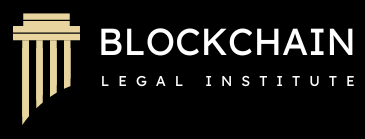Blockchain issues can potentially fall under various types of courts depending on the nature of the legal matter and the jurisdiction. Here are a few examples of the types of courts that might address different aspects of blockchain-related issues:
- Civil Courts: Civil courts handle disputes between individuals, organizations, or entities. Blockchain-related cases involving contractual disputes, intellectual property rights, fraud, and other civil matters could be addressed in these courts.
- Commercial Courts: Some jurisdictions have specialized commercial courts that focus on business-related disputes. Given the growing impact of blockchain technology on businesses, these courts might handle cases related to smart contracts, trade, and commerce involving blockchain.
- Intellectual Property Courts: If blockchain-related issues involve patents, trademarks, copyrights, or other intellectual property rights, specialized intellectual property courts might handle these cases.
- Technology and Cyber Courts: In some areas, there are technology or cyber courts that specifically deal with cases related to technology, cybersecurity, and digital matters. These courts might handle blockchain-related cybersecurity breaches, data privacy issues, or technology-related disputes.
- Federal Courts: In the United States, federal courts could handle cases involving federal laws, regulations, or disputes that cross state lines. Blockchain cases that touch on federal regulatory matters, securities regulations, or constitutional issues might be addressed in federal courts.
- International Courts and Arbitration: As blockchain technology is global, cross-border disputes might be resolved through international courts or arbitration processes, especially if parties from different countries are involved.
- Blockchain-Focused Courts (Emerging): Some jurisdictions are considering the establishment of specialized blockchain or technology courts to specifically handle cases related to emerging technologies, including blockchain.
It’s important to note that the jurisdiction, the specific legal matter, and the laws of the region will determine which court is appropriate for addressing a particular blockchain issue. As blockchain technology continues to evolve, legal frameworks and courts may adapt to accommodate the unique challenges and opportunities presented by this technology.
Some of the legal issues to be addressed include:
Consumer protection: Ensuring rights and interests of blockchain users are safeguarded.
Contract: Assisting in forming and executing contracts on the blockchain.
Intellectual property: Protecting digital assets and inventions in the blockchain space.
Taxes: Helping navigate the complex landscape of cryptocurrency and blockchain taxation.
Fintech and virtual currency business compliance: Supporting fintech and cryptocurrency businesses in meeting blockchain-specific regulatory standards.
Broker-dealer registration and compliance: Guiding on registration and compliance for blockchain-based broker-dealers.
Business structuring and corporate law: Assisting in the creation and governance of blockchain-based businesses.
Non-fungible tokens (NFTs) laws : Facilitating the understanding, creation, and trading of NFTs.
Banking and payments law: Providing guidance on legal issues related to blockchain-based banking and payment systems.
Digital securities: Navigating the legalities of issuing and trading digital securities on the blockchain.
Tokenization: Advising on the process of converting assets into tokens for blockchain transactions.
Fund formation and investment advisor registration: Guiding the establishment of blockchain and cryptocurrency-focused funds and registration of investment advisors.
Litigation: Representing and advising clients on blockchain-related lawsuits and disputes.
Securities law: Ensuring blockchain projects comply with relevant securities regulations.
Money laundering and financial crimes law: Helping blockchain businesses prevent financial crimes and comply with anti-money laundering laws
